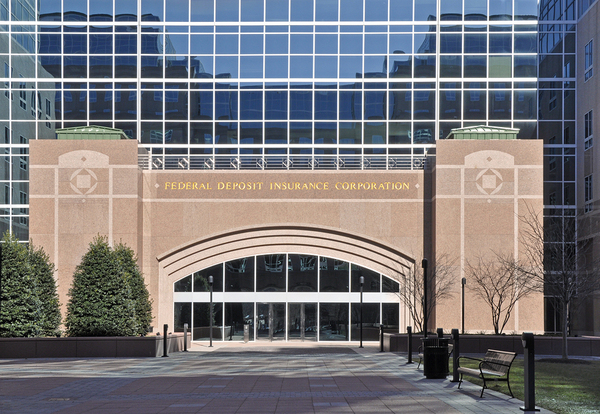View Sale Announcement Detail


Archived news
Excerpt: FinTechs may have made a splash on the lending scene, but they're having a tough time obtaining a bank charter and entering the banking sphere.
 A recent FinTech event hosted by the FDIC discussed how FinTechs are having a tough time proving capital and profitability to obtain charter.
A recent FinTech event hosted by the FDIC discussed how FinTechs are having a tough time proving capital and profitability to obtain charter.
While FinTechs have certainly made banking more convenient for many, such perks haven't come without their challenges for FinTechs themselves. And federal regulators recently gathered to go over such challenges facing the FinTech industry.
More specifically, challenges surrounding the FinTech chartering process were discussed, presenting obstacles that are making it tough to enter into the banking realm.
At a recent FinTech event hosted by the Federal Deposit Insurance Corp. (FDIC), which representatives of Garnet Capital attended, issues surrounding FinTechs' difficulty in showing sizable capital and profitability in their business plans in an effort to obtain charter were reviewed.
The thing is, by definition, FinTechs are thinly capitalized and thus not easily transformed into banks.
While the Office of the Comptroller of the Currency (OCC) says that it's starting to see an increasing number of FinTechs apply for full national bank charters pending FDIC approval for deposit insurance, only two applicants have been noted. In reality, two applicants don't necessarily paint the picture of widespread interest among FinTechs to receive a charter and become full-blown banks.
And with FinTechs struggling to prove that they can meet the criteria for capital and profitability, it's possible that the pool of interested FinTech applicants might continue to be relatively small.
In particular, building enough capital is a huge issue. While many FinTechs may have substantial equity, they may not necessarily have substantial capital. Furthermore, many FinTechs may be able to show profit on paper, but they're not always profitable.
 Consumer data aggregation was also discussed at the FDIC meeting on FinTechs.
Consumer data aggregation was also discussed at the FDIC meeting on FinTechs.
The issue of consumer data aggregation and how it's shared within banks and with outside third parties - including FinTechs - was also a hot topic of discussion at the FDIC gathering. There are legitimate concerns over privacy and cybersecurity, thereby making third-party vendor management critical.
Data aggregation at financial institutions and the way in which consumers control their own financial information must be addressed, with the FDIC agreeing that more emphasis needs to be placed on studying this issue.
But while data aggregation is a crucial matter, it is a complicated one that may be better addressed through the private sector. Clearly, consumers should have full knowledge of whether or not their data is being shared; and if it is, who it is being shared with. In a case like this, it may be better to deal with the issue of data aggregation on a private level rather than getting the government involved.
Representatives from Garnet Capital were in attendance at this crucial gathering regarding FinTechs and their struggle to enter the banking sphere. Our team of advisors is always taking steps to stay in-the-know in the world of banking to help ensure that our clients receive the most comprehensive and knowledgeable advice and guidance.
Team up with Garnet Capital and register for our online portfolio auction system to ensure a robust loan portfolio today and well into the future.

